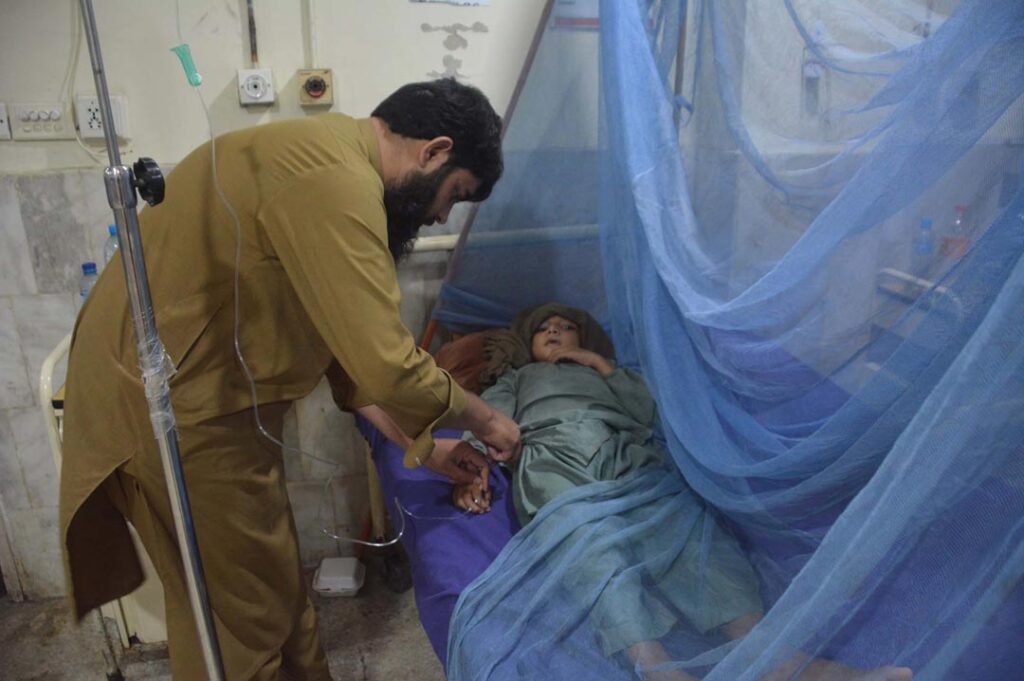Being assisted by his relatives, 32-year-old Muhammad Jan, visibly weak, was transported in a private ambulance to Peshawar, the nearest major city. Doctors had advised urgent medical attention for his severe malaria.
Dr. Anthony Alamzeb Feroz, the Public Health Coordinator for Peshawar District, described Jan’s condition upon arrival on May 9, 2024, noting symptoms typical of malaria infection and its life-threatening complications.
The burden of malaria in Khyber Pakhtunkhwa (KP) province escalated significantly in the past year, according to Dr. Irshad Roghani, Director of Public Health for the region. The number of cases surged from 150,000 in 2022 to 500,000 in 2023, as reported by the Public Health Department. This rise underscores the urgency of addressing the issue.
Climate change, as indicated by extreme weather events like floods and heavy rainfall, has been identified as a primary factor driving the upsurge in malaria cases, observed Dr. Roghani. The province experienced its “wettest April” in over six decades in 2024, as highlighted by Pakistan’s Meteorological Department, leading to concerns of further spikes in malaria and dengue cases.
Excessive rainfall and resultant standing water create favorable breeding grounds for mosquitoes, exacerbating the spread of vector-borne diseases, explained entomologist Salauddin Marwat. This situation underscores the need for effective preventive measures and vigilant monitoring of mosquito populations.
Dr. Muhammad Mukhtair, who heads Pakistan’s Directorate of Malaria Control, emphasized the urgency of revising the National Strategic Plan for Malaria Elimination to address climate change’s impact on disease prevalence. The unprecedented malaria outbreak in 2022 and 2023 necessitates a climate-change-specific approach to malaria control.
The scarcity of entomologists in KP poses a challenge to disease prevention efforts, noted Marwat, underscoring the importance of bolstering the workforce in this field.
To combat the spread of vector-borne diseases, the KP government has outlined a comprehensive plan of action, including measures such as mechanical destruction of breeding sites, larval control, community awareness campaigns, and distribution of mosquito nets.
Efforts are underway to make KP malaria-free by 2035, with a substantial budget allocated for malaria control initiatives in the current year, according to Dr. Roghani.
